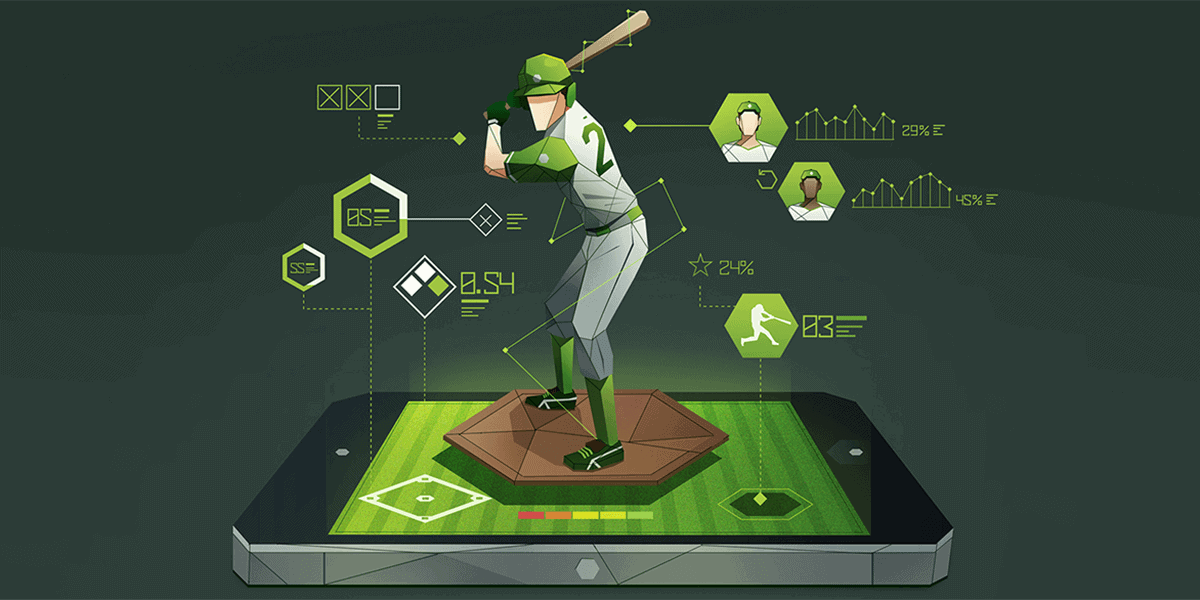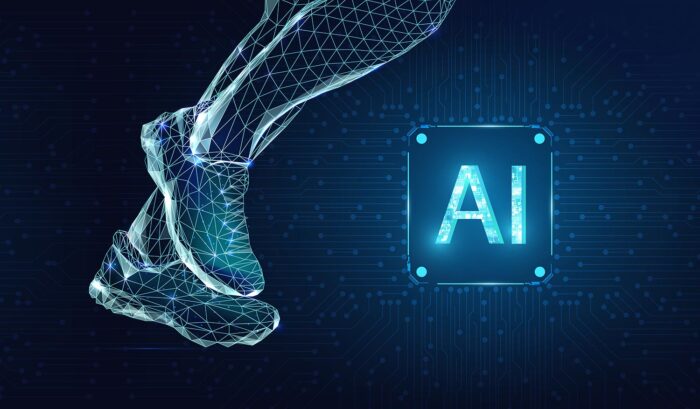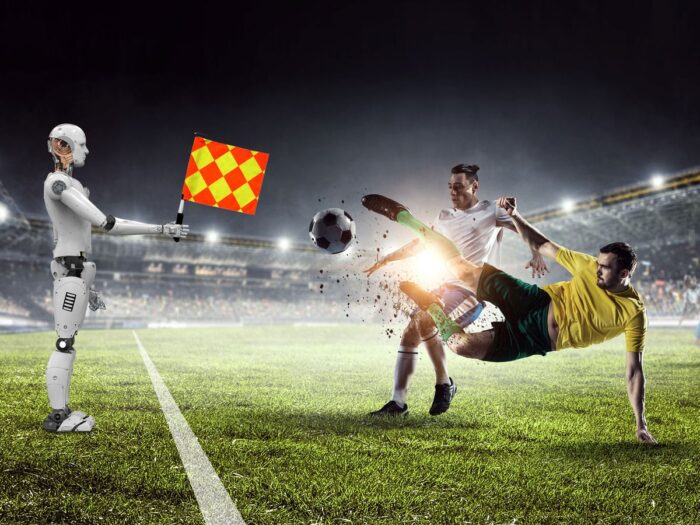Sports have always been a captivating arena where physical prowess, strategy, and human potential converge. Yet, in the modern age, sports have transcended their conventional boundaries to become a fertile ground for data-driven innovation. This transformation is encapsulated in the burgeoning field of sports analytics.
Sports analytics is the application of data analysis, statistical modeling, and artificial intelligence to unravel the intricate web of information surrounding athletic competitions. It represents a paradigm shift in how athletes train, coaches strategize, and fans engage with their favorite teams.
At its core, sports analytics empowers stakeholders across the sporting spectrum—athletes, coaches, front offices, and fans—with a deeper understanding of the game. It allows them to dissect performance metrics, uncover hidden patterns, and make informed decisions that differentiate between victory and defeat. This approach extends to individual player performance, team dynamics, injury prevention, scouting prospects, and optimizing game strategy.
In this exploration of sports analytics, we delve into the role of artificial intelligence in shaping the future of sports, examine critical applications, scrutinize the challenges and ethical considerations, highlight real-world examples, and gaze into the crystal ball to discern the future trends of this exhilarating field.
The Role of AI in Revolutionizing Sports Analytics

Source: aiworldschool.com
Artificial Intelligence (AI) has emerged as a game-changer in sports analytics, fundamentally altering how we perceive, analyze, and engage with sports. At its essence, AI is a set of technologies and algorithms that enable computers to mimic human intelligence and reasoning. When applied to sports analytics, AI transcends human limitations, providing unparalleled capabilities for processing vast and intricate datasets in real time.
One of the primary roles of AI in sports analytics is data processing. The sports world generates a staggering volume of data, encompassing player statistics, biometric measurements, video feeds, and more. AI’s capacity to swiftly and accurately parse this data is pivotal. It can identify patterns, trends, and correlations that would be arduous for humans to discern, leading to more comprehensive insights into player performance, team dynamics, and game strategies.
Moreover, AI contributes to the development of predictive analytics models. Machine learning and deep learning algorithms can accurately forecast game outcomes, player injuries, and individual player performance. This predictive power aids coaches and analysts in making informed decisions, both in-game and in the broader context of team management.
Furthermore, AI enhances the fan experience. It generates real-time statistics, highlights, and personalized content, fostering deeper fan engagement and loyalty. AI-powered virtual and augmented reality experiences bring fans closer to the action, blurring the line between the physical and digital sports realms.
Critical Applications of AI in Sports Analytics

Source: theweek.in
1. Performance Analysis
AI empowers athletes and coaches with in-depth insights into player performance. AI can analyze player statistics through machine learning algorithms, such as shooting accuracy in basketball, passing accuracy in soccer, or serve speed in tennis. Coaches can track individual players’ strengths and weaknesses, facilitating personalized training regimens. AI-powered video analysis tools automatically tag and index game footage, making it easier to review plays, identify patterns, and refine strategies.
2. Injury Prevention and Player Health Monitoring
Player injuries are a significant concern in sports. AI-driven wearables and biometric sensors continuously monitor players’ physical condition, tracking factors like heart rate, fatigue levels, and the risk of overuse injuries. Machine learning models can predict injury risks based on these data points, enabling teams to implement preventive measures, optimize recovery protocols, and extend players’ careers.
3. Game Strategy Optimization

Source: yakagency.com
Coaches and analysts use AI to gain a competitive edge. AI can generate actionable insights by processing historical game data and real-time player tracking information. For instance, electronic play-calling systems, like the ones built by GoRout, simply on-field coach-to-player communication and AI can take it a step further by being able to recommend optimal play-calling strategies in American football based on the opponent’s tendencies and field position. AI helps analyze opponent formations and passing patterns in soccer to devise counter-strategies.
4. Scouting and Recruitment
Talent identification and recruitment are vital in sports. AI assists scouts by automating the analysis of player statistics and performance metrics. Machine learning algorithms can identify promising young talents or undervalued players in the market, aiding teams in making informed recruitment decisions. Additionally, natural language processing (NLP) analyzes social media sentiment and news articles about players, providing a comprehensive view of their public image and potential marketability.
5. Fan Engagement and Personalization
AI enhances the fan experience by providing personalized content and real-time statistics. Fans can receive tailored news updates, game highlights, and even virtual reality (VR) or augmented reality (AR) experiences that bring them closer to the action, thanks to cutting-edge solutions offered by MLSDev. AI-driven chatbots and voice assistants offer interactive engagement opportunities, answering fan questions and providing instant information.
6. Referee Assistance

Source: mirror.co.uk
AI can support referees and officials by analyzing game footage to detect rule violations, offside situations, or potential fouls. In sports like tennis, AI systems are used to track ball trajectories and determine whether the ball is in or out, reducing human errors.
7. eSports Analytics
eSports, a rapidly growing sector, benefits from AI-driven analytics to assess player performance in video games. AI can analyze gameplay data, such as reaction times, accuracy, and decision-making, to help players and teams improve their strategies.
Future Trends in AI-Powered Sports Analytics
The future of AI-powered sports analytics holds immense promise and is poised to shape the landscape of sports in profound ways:
- As AI algorithms become increasingly sophisticated, we can expect real-time analytics to become more accurate and accessible. This will empower coaches and athletes with instant insights, allowing for rapid adjustments during games.
- AI-driven simulations and predictive models will likely evolve, enabling teams to simulate various game scenarios and test strategies virtually. This will aid in strategy development and risk assessment.
- Integrating AI with wearable technology will become more seamless, providing real-time player biometric data to optimize training and prevent injuries effectively.
- Fan engagement will reach new heights, with AI-generated content, immersive VR/AR experiences, and personalized fan interactions becoming more prevalent.
- AI’s role in officiating and rule enforcement may expand, reducing human error and enhancing the fairness of sporting events.
Educational Opportunities in AI and Sports Analytics

Source: gizbot.com
Educational opportunities in AI and sports analytics have burgeoned to cater to the growing demand for skilled professionals in this field:
- Many universities now offer specialized programs, such as master’s degrees or certificates, in sports analytics, data science, or AI. These programs cover data analysis, machine learning, and their application in sports contexts.
- Online courses and platforms like Coursera, edX, and Udacity provide accessible options for individuals looking to acquire foundational knowledge or specialize in sports analytics.
- Internships with sports teams, data analytics firms, or sports technology companies offer hands-on experience applying AI in sports.
- Professional organizations and conferences, such as the MIT Sloan Sports Analytics Conference, provide networking and educational opportunities for aspiring sports analysts.
Research and Innovations in AI-Powered Sports Analytics
Research and innovation in AI-powered sports analytics continue to drive the field forward:
- Advancements in computer vision are improving player tracking and object recognition in video footage, enabling more accurate data collection.
- Natural language processing (NLP) is being used to analyze vast amounts of unstructured data, such as social media sentiments and news articles, to gauge public opinion and assess player marketability.
- Reinforcement learning is gaining traction in optimizing player strategies and game simulations.
- Explainable AI (XAI) research is working to make AI-driven insights more interpretable for coaches and analysts.
- Collaborations between sports organizations, technology companies, and research institutions fuel innovation, leading to the development of cutting-edge tools and solutions.
- Innovations in data collection methods, from wearable sensors to advanced tracking systems, continue to expand the scope of data available for analysis.
Conclusion
Advancing sports analytics through AI research is revolutionizing the world of sports by providing teams, coaches, and fans with new ways to understand and enjoy the game. The field continues to evolve, with ongoing research and practical applications driving innovation and improvement.
